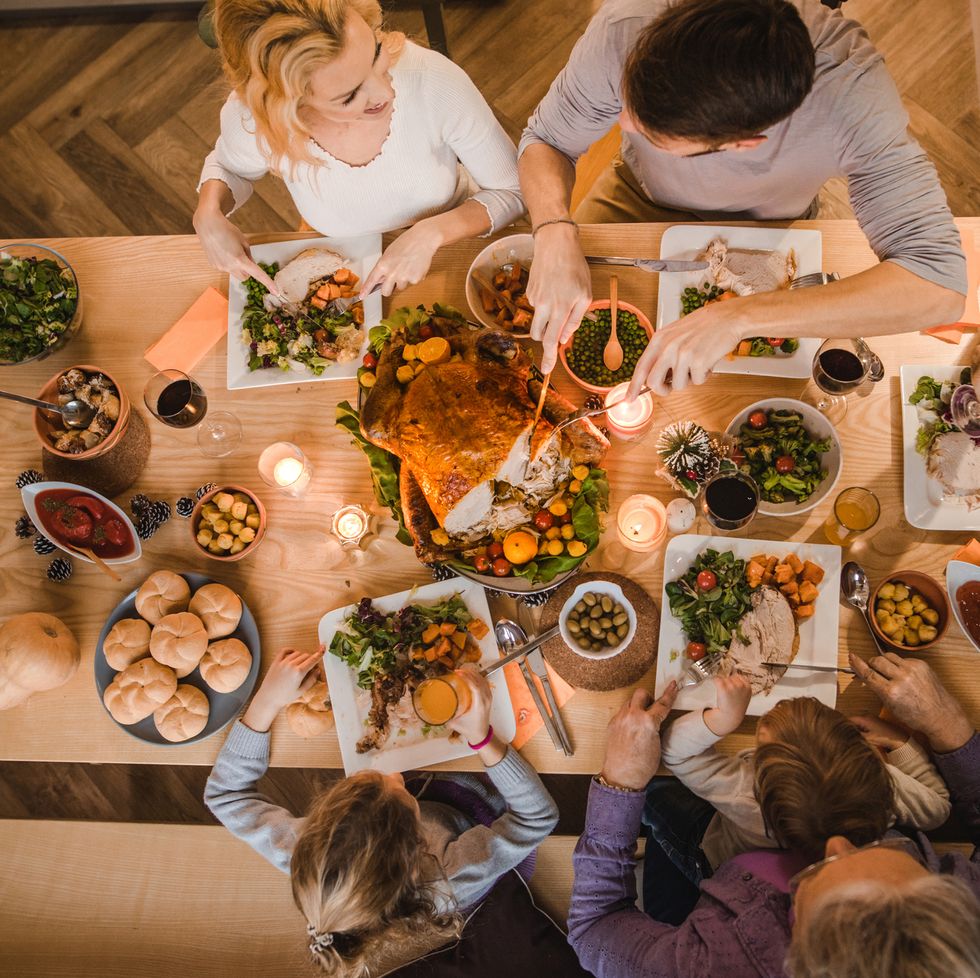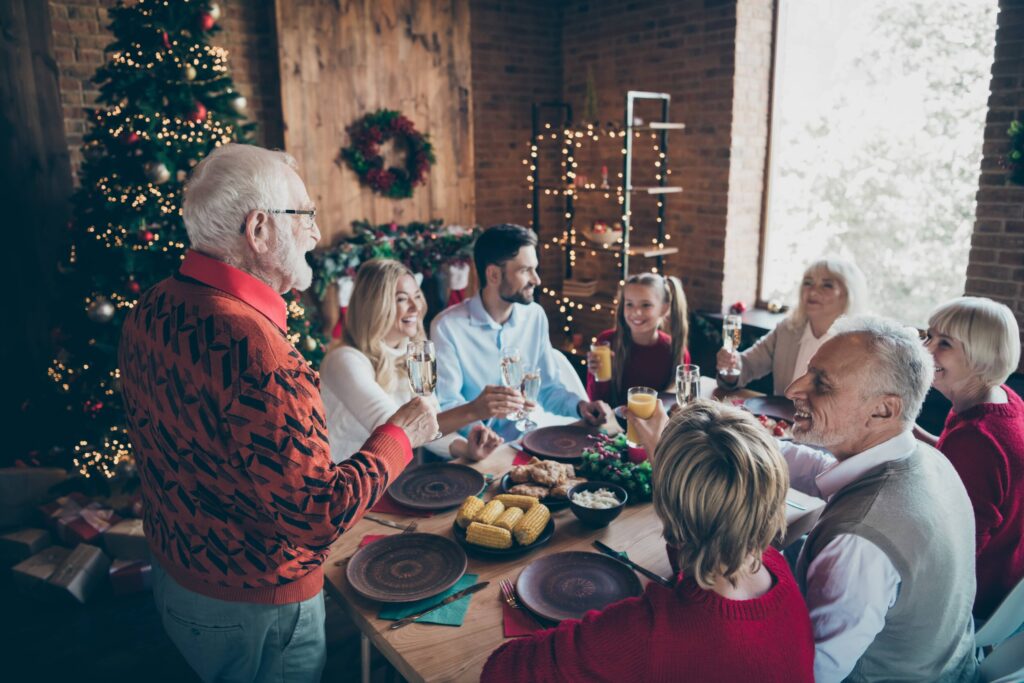Family customs are not just mere rituals or routines, they are the lifeblood of family ties that make our lives richer by creating a sense of continuity, identity, and communal joy.
The importance of family traditions is that it is typically passed from one generation to another, form an integral part of the fabric of family life. From grand holiday celebrations to simple daily routines, family traditions create a sense of belonging, instill values, and foster lasting memories.
In this article, we look at the significance of family traditions and present five distinctive actions that can unite families forever bonding them through time.
What Are Family Traditions?
Family traditions are the customs and habits a family creates and maintains over time, often passing them from generation to generation. These can be any activity that brings them together, makes them feel as one, and gives them memories.

Frequently celebrated holidays have different importance of family traditions associated with them. For example, during Christmas families decorate trees and bake cookies before exchanging gifts under the tree or attending religious services.
Thanksgiving is usually centered around cooking a large meal to share with others while expressing gratitude for what they have and watching football afterward. Easter tends to involve egg hunts in the morning followed by church services then ending with a family brunch. In contrast, Hanukkah usually consists of lighting candles on the menorah each night for eight nights straight.
Families highly value less frequent but still important daily or weekly practices. Some examples include eating dinner as a family every night, having Sunday brunch together each week, or even just ordering pizza once every Friday night without fail.
Other routines might consist of telling bedtime stories every night before going to sleep as well as playing board games together every Saturday evening after dinner when everyone has free time. Special phrases such as saying grace before meals or sharing best and worst parts about their day everyday also help hold families closer together.
What Is The Importance Of Family Traditions?
Family traditions hold great significance for many reasons. They contribute towards the general wellbeing and togetherness of the family unit, which brings about various psychological, emotional and social benefits.

The following are some of the importance of family traditions:
1. Building Strong Family Ties
One of the importance of family traditions is that they create a chance for family members to spend quality time together hence developing closeness. These shared activities and rituals help build strong, lasting relationships among family members.
Family members learn better means of communication when they take part in traditions, offer support to each other, and feel united.
2. Identity Formation
Traditions are important in helping individuals understand their families’ history and culture. Such feelings make them feel that they belong somewhere as opposed to themselves only.
This sense of belonging is crucial for children as it helps them understand their own identity and where they come from.
3. Stability through tough times
During moments of change or anxiety, family traditions provide stability as well as continuity.
The importance of family traditions is that they offer a predictable routine that relatives can lean on during hard times; this is especially meaningful during difficult periods. Traditions are known ahead of time thus making them comforting while also relieving anxiety.
4. Teaching morals and moral principles
Family traditions often pass important values and life lessons from generation to generation. These practices usually embody the fundamental beliefs and ideas that families cherish, educating children about respect, thankfulness, responsibility, and other crucial virtues.
5. Making memories that will last
Traditions mark special occasions that become unforgettable memories. As a result of these shared experiences, a family acquires its collective history with accounts that can be handed down across generations. These recollections help cement emotional ties among family members.
6. Cultivating Group Identity
Involvement in family rituals makes one feel attached to their kin group or clan thereby creating a sense of belongingness. This bond is significant, especially for children and adolescents who experience support as well as understanding within their immediate family setting.
7. Boosting Emotional Wellbeing
Most times, familial conventions entail enjoyable activities that promote happiness and well-being. In this regard, all activities aimed at promoting fun such as holiday celebrations or an annual vacation or participating in a family game night ultimately contribute to overall emotional health by giving pleasure and relaxation too much.
8. Encouraging Family Communication
Traditions create periods for members of a family to communicate with each other on a more regular basis; either as they plan a holiday feast or merely share meals, these enable open dialogue on how to keep members connected.
9. Promoting Cultural and Religious Continuity
These are family traditions that are usually based on cultural or religious beliefs that play a role in preserving and transmitting the main elements of a family’s culture.
Involvement in such traditions helps families maintain their cultural or religious ties thus making them last for generations.
Family traditions provide the very foundation of the family unity and cohesion. They help establish and maintain meaningful connections, transmit essential values, and contribute to one’s sense of identity and belongingness.
These procedures help build up the tapestry of shared memories through which families can navigate life’s problems.
5 Unique Family Traditions You Can Practice
One way of strengthening family ties and creating long-lasting memories is by establishing unique family traditions. Here are some five different family traditions that shows the importance of family traditions:
1. Recipe Swap and Cook-off
For instance, every month a member of the family may pick out a recipe they would like to try. The recipes are then exchanged among individuals while others prepare their dishes.
The family can then eat together and taste all the foods as well as give each other comments about how they have cooked them. This also improves on cooking skills, adds variety to the diet, and introduces fun in the process.
2. Memory Jar
This jar should be kept somewhere everyone can see it so that small pieces of paper and pens may be available at all times in the house. For example, your family members could record happy moments, achievements, funny incidents or anything else worth remembering throughout the year and drop them into this jar.
At the end of the year or during a special occasion involving everyone in your household, empty out its contents by reading them aloud. The significance of this tradition is that it helps people look back upon positive things they have encountered and strengthens feelings of thankfulness also.
3. Sea Hunt for Each Season
Create a game of finding in every season. For example, in spring, look out for certain flowers, birds or insects; In summer go hunting for seashells, leaves of specific types or landmarks;
Alternatively, during autumn months find colourful leaves, acorns and pumpkins or locate festive decorations and footprints on the snow during winter seasons. This will help them to see that spending time outside is a way to gain knowledge and understand the world we live in.
4. Family’s Monthly Talent Show
The family should have a talent show to highlight each member’s gift once per month. Some of the things one can showcase include singing, dancing, playing an instrument such as guitar and violin, performing magic tricks and sharing one’s recent art project.
Anything that qualifies as a form of talent. It emphasizes uniqueness among the students thus increasing their level of confidence since it allows everyone to be supported by others.
5. Yearly Book Club
Selecting a book for the whole family to read over a certain period like a month or even more than that will be crucial at this point. After reading this book organize a discussion session with your family members at which they can share their thoughts about what they have read as well as some memorable parts from it.
To keep everybody engaged change the person responsible for selecting books between different relatives so that people read books from various genres and on different topics within their home library rings . Thus promoting reading culture , analyzing situations critically as well as making meaningful conversations .
These unique family traditions make life richer creating closer bonds among them through activities characterized by fun and interest which everyone eagerly anticipates
A Word From Mind Family
Family traditions are the threads that weave together the fabric of our shared lives, offering stability, identity, and joy. By incorporating unique traditions like a Recipe Swap and Cook-off families can cultivate a vibrant, supportive environment that nurtures growth and happiness.
At Mind Family, we believe in the profound impact that family traditions can have. They are more than just activities; they are the foundation upon which strong, loving families are built.
We encourage you to explore and create your own traditions, tailored to your family’s unique interests and values, and witness the beautiful tapestry of memories and bonds that will unfold.
Frequently Asked Questions (FAQs)
What are family traditions?
Family traditions are customs and practices developed and maintained over time, often passed down through generations, to strengthen family bonds and create lasting memories.
What is the importance of family traditions?
Family traditions foster unity, create a sense of identity, provide stability, teach values, and enhance emotional well-being by offering regular opportunities for family connection and shared experiences.
What are some examples of unique family traditions?
Unique family traditions include a Recipe Swap and Cook-off, a Memory Jar, Seasonal Scavenger Hunts, Monthly Family Talent Shows, and an Annual Book Club, promoting fun and family connection.


















Leave a Reply